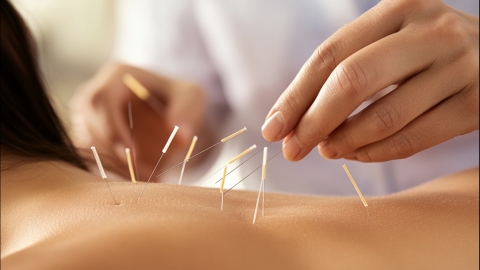Why does it hurt more after acupuncture?
Generally, the reasons for increased pain after acupuncture may include acupoint reaction, muscle contraction and lactic acid buildup, acupoint dermatitis, cutaneous nerve injury, and muscle strain. The specific analysis is as follows:

1. Acupoint Reaction
After acupuncture, patients may experience mild soreness, numbness, distension, or pain at the acupoints. This is a normal physiological response caused by the stimulation of acupuncture, indicating that acupuncture is producing its intended effect by promoting blood circulation and the body's self-repair mechanisms. This temporary discomfort usually subsides naturally within a few hours to several days. After acupuncture, patients should ensure adequate rest and avoid strenuous exercise to prevent worsening of symptoms.
2. Muscle Contraction and Lactic Acid Buildup
Acupuncture stimulation of acupoints may cause muscle contraction, leading to lactic acid buildup, which can cause muscle soreness. This type of pain generally does not require special treatment and will resolve on its own with appropriate rest. Before receiving acupuncture treatment, patients should inform their doctor of their physical condition and allergy history so the doctor can select appropriate acupoints and stimulation intensity.
3. Acupoint Dermatitis
Acupoint dermatitis may be related to an inflammatory response triggered by bacterial invasion following damage to the skin barrier. Inflammation may cause discomfort symptoms such as redness, swelling, heat, and pain. Accompanying symptoms may include itching. Anti-inflammatory medications such as hydrocortisone butyrate ointment, mometasone furoate ointment, and ethoxybenzamide ointment may be used as directed by a physician.
4. Cutaneous Nerve Injury
Cutaneous nerve injury may result from improper needle insertion depth or inaccurate acupoint selection. Following cutaneous nerve injury, abnormal nerve conduction function causes sensations of pricking pain and burning. Symptoms may also include numbness and reduced sensation. If the injury is mild, cold compresses can be used to reduce swelling and pain; for severe cases, medications such as ibuprofen sustained-release capsules, celecoxib capsules, and vitamin B12 injections may be taken as directed by a physician to alleviate symptoms.
5. Muscle Strain
Muscle strain may occur due to increased muscle tension and spasms caused during acupuncture. Muscle injury may occur during intense physical activity or prolonged fatigue, and acupuncture may exacerbate this tension and spasm, possibly causing symptoms such as muscle soreness and stiffness. Muscles can be relaxed through massage and stretching to improve blood circulation and relieve pain. If necessary, medications such as tizanidine hydrochloride tablets, chlorzoxazone tablets, and Shenjin Dan capsules may be used under a physician's guidance.
After acupuncture, patients should avoid consuming spicy foods and beverages to prevent interference with wound healing. It is also important to keep the wound clean to avoid infection.





